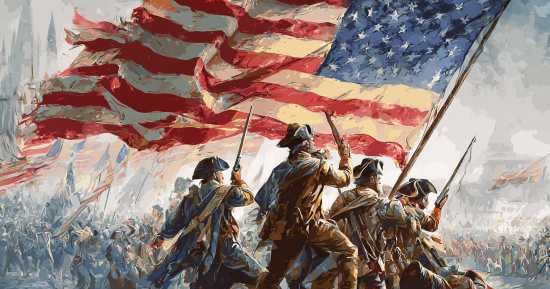
The 4th of July History Quiz begins with fireworks in the sky and echoes of revolution in the past, linking modern celebration to a moment when courage rewrote the fate of a nation. On this day in 1776, the Declaration of Independence was signed, but its story is more than a date on a calendar—it’s a chronicle of daring debates, radical ideas, and relentless determination. By tracing the origins of this pivotal holiday, you uncover not just patriotic pride but the extraordinary human effort that forged freedom from uncertainty.
Before fireworks and parades, the 4th of July was rooted in bitter disputes, dangerous risks, and monumental choices that shaped the future. Thirteen colonies stood defiant against one of the most powerful empires in the world, and every signature on the Declaration was an act of calculated defiance that could have ended in ruin. These men debated for weeks in the sweltering halls of Philadelphia, their disagreements fierce but their vision unwavering, creating a document that carried the weight of revolution and the promise of a new beginning.
What followed was a century-spanning legacy of remembrance and reinvention. The 4th of July evolved from small gatherings of readings and speeches into one of the most celebrated holidays in the United States, symbolizing unity in times of war and optimism in times of peace. To truly understand Independence Day is to see it not just as a date, but as a living reflection of the country’s resilience and its ever-changing identity.
The Revolutionary Birth of Independence Day
The origins of the 4th of July stretch beyond a single document and into the heated climate of colonial resistance. For years, mounting taxes and lack of representation fueled unrest, transforming grievances into an unyielding demand for change. By the time delegates met in Philadelphia, the question was no longer whether independence was necessary but whether they had the courage to seize it. The drafting of the Declaration of Independence was as contentious as it was historic. Thomas Jefferson’s words would become immortal, but not without edits, compromises, and fierce debate among the delegates.
The Evolution of 4th of July Traditions
By the 19th century, the holiday had become a national spectacle. Communities introduced parades, fireworks, and patriotic music, transforming Independence Day into an event that brought together Americans of every background. The day became a powerful reminder that even in times of division, shared history could unite the country.
As the United States expanded and industrialized, these celebrations grew louder and grander. The 4th of July emerged not only as a historical marker but also as a symbol of resilience, a testament to a country that had faced challenges and yet remained steadfast in its ideals.
7 Fun Facts About the 4th of July
- John Adams believed Americans should celebrate independence on July 2, the day the Continental Congress voted for freedom.
- The first 4th of July fireworks were launched in Philadelphia in 1777, just one year after the Declaration was signed.
- Calvin Coolidge is the only US president born on the 4th of July.
- Hot dogs became a 4th of July staple in the 20th century, with Americans eating over 150 million each year.
- The Liberty Bell in Philadelphia was not rung on July 4, 1776; that tradition began decades later.
- Benjamin Franklin wanted the turkey, not the bald eagle, to be America’s national bird.
- The Macy’s 4th of July Fireworks Show in New York City is one of the largest in the world, watched by millions annually.
The Modern Meaning of Independence Day
Fireworks and cookouts may dominate the day, but beneath the festivities lies a legacy of debate, sacrifice, and determination.
Modern celebrations often weave history into the fabric of entertainment. Public readings of the Declaration, historical reenactments, and visits to landmarks like Independence Hall remind Americans of the enduring values that define the holiday. These traditions give the day its depth, ensuring it remains more than just a summer festival.
It endures because its story is both ancient and unfinished—a reminder that liberty, once won, must always be protected.
7 Serious Facts About the 4th of July
- The Declaration of Independence was not fully signed on July 4, 1776; most signatures came later in August.
- The American Revolutionary War continued for seven more years after 1776, ending with the Treaty of Paris in 1783.
- The 4th of July was not recognized as a federal holiday until 1870.
- The fireworks tradition has roots in colonial celebrations where cannons and muskets were fired to mark the day.
- Slavery persisted in the United States for nearly 90 years after independence, a contradiction that shaped later struggles for equality.
- The 4th of July became a unifying event after the Civil War, symbolizing reconciliation between North and South.
4th Of July History – FAQ
Fireworks have become a traditional part of 4th of July celebrations due to their association with the country’s independence.
Many also display the American flag and participate in patriotic events to honor the nation’s history and values.
Independence Day parades have been a part of American celebrations since the country’s early years.
